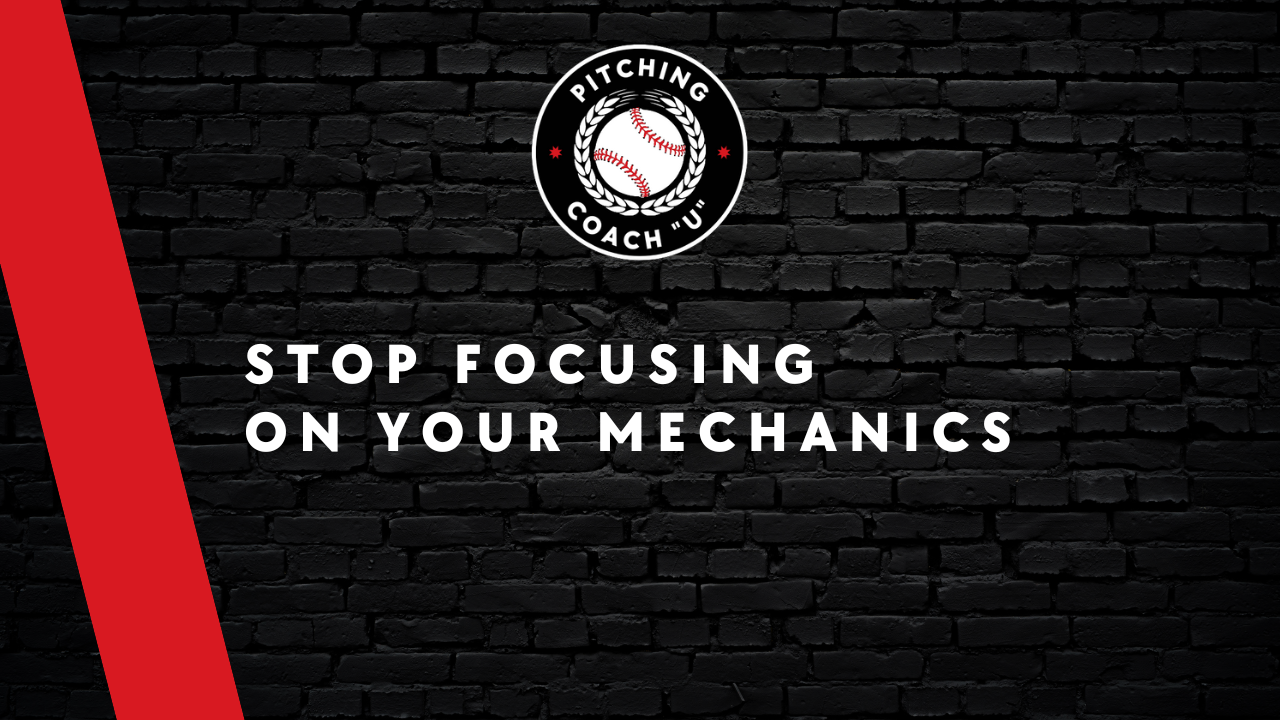
MMV #023: 3 Causes of a Poor Lead Leg Block
Jun 05, 2023
J-bands by Jaeger Sports are a must for any players pre-throwing routine.
If you or your pitchers need new bands, look no further!
Click here to get yours today!
*Full transparency: We do get a commission when using this link. Thank you for your support!*
Read time: 3 minutes
The lead leg block is an essential piece to transferring energy up the chain.
But most don't know how to use it properly.
The lead knee should start extending immediately after the front foot lands.

A lead knee that excessively continues to flex after foot plant would be considered a collapsed front knee.
A huge velocity killer.
So what’s causing it?
There are 3 potential causes:
1. Closed hips
2. Not enough flexion at foot plant
3. Not enough force straight into the mound
1. Closed hips

It is very difficult to extend the lead knee with the hips closed.
Knee extension happens as a by product of good rotation.
If your hips rotate later, it is going to delay how quickly the knee can extend.
Often times this will lead to the knee continuing to flex after foot plant.
The only way you can still block out of closed off hips is if you have incredible hip IR.
Players that don’t will need their hips to open more before blocking.
2. Not enough flexion at foot plant
Ideally you are landing with roughly 45 degrees of lead leg flexion.
Player that land with much less than this will usually have to collapse the front knee to absorb the force before extending out of it.
Imagine you are doing a depth jump off a box.
You don’t land with your legs straight.
You need knee flexion to absorb the force.

Players that are able to block with minimal flexion at foot plant aren’t able to generate as much force in the front leg.
3. Not enough force into the mound
Some players that collapse the front knee don’t have enough force landing straight into the mound.
They are landing with force going more in the direction of home plate.
While you need some of that, too much will likely cause a collapsed knee.
If this is you, work on landing from above, straight down into the ground.
3 possible causes of a collapsed front knee RECAP
1. Closed Hips
2. Not enough flexion at FP
3. Not enough force straight into the mound
That's all for this week.
Whenever you're ready, there are 2 ways we can help you:
1. If you are looking for something more hands on, we'd recommend starting with one of our affordable services:
→ Coaching for Coaches: Schedule a call and we'll help you design development plans for your players, teach you the fundamentals of mechanics, and answer any pitching development questions you have.
→ Mechanical Analysis: We'll analyze your delivery with 21 checkpoints and give you an actionable plan to improve.
2. Join 14,000+ followers for daily threads and tweets on pitching development.
Pitching Coach "U"
The Monday Mound Visit
Teaching coaches how to develop the complete pitcher. Actionable advice delivered to your inbox every Monday.



